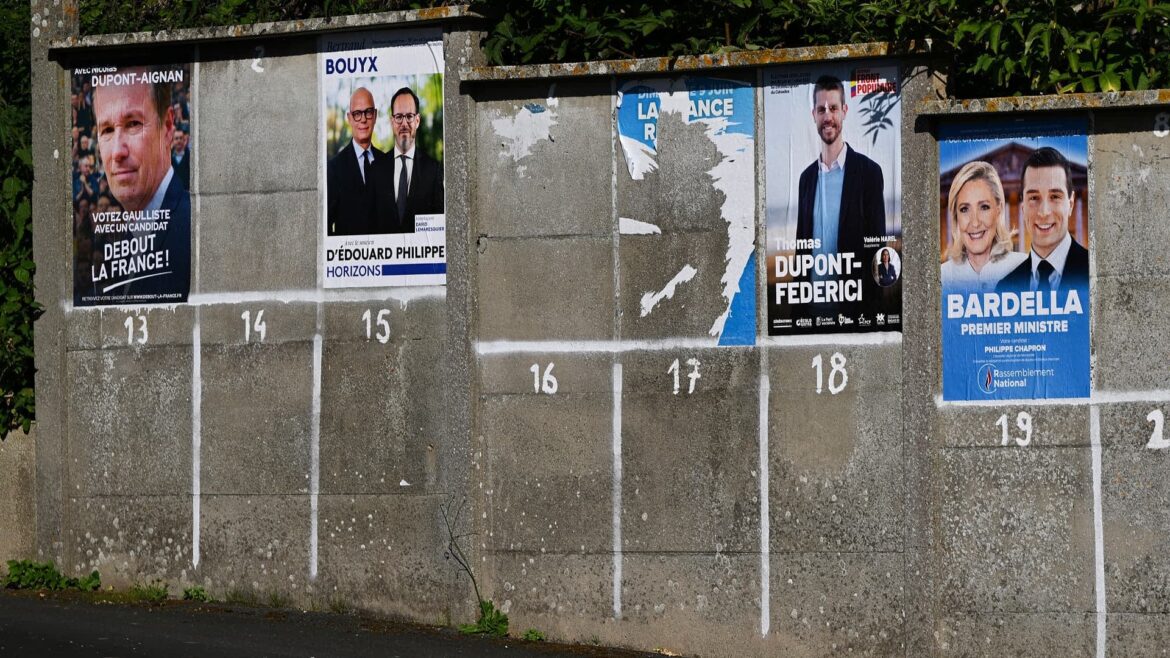Summary
Following the June elections, the European Greens have suffered significant losses in the European Parliament, with the far right making gains and the conservative center-right European People’s Party remaining the largest group. The shift in priorities among European citizens, focusing more on economic concerns, migration, and war, has raised questions about the future of the E.U.‘s ambitious climate change policies, such as the 2050 zero-emissions target under the Green Deal initiative.
After the June elections, the new balance of power in the European Parliament suggests that climate change is no longer a top priority for European citizens amid the rising cost of living on the continent, migration and the ongoing Russo-Ukrainian war.
The European Greens, a political party representing environmentalist and progressive political forces from the E.U.’s 27 member states, has suffered extensive losses in the elections. The party earned only 51 parliamentary seats, down from 71 seats in 2019.
Farmers already have a lot to do under the E.U.’s green directives, and I do not expect things to change much with the new parliamentary composition.- Dimitris Mavroidis, Livanates agricultural association
On the other hand, the parliament’s far right, consisting of Eurosceptic and populist parties such as the French National Rally, has made significant gains. The conservative center-right European People’s Party (EPP) has remained the largest group in the European Parliament, grabbing 189 seats (13 more than in the 2019 elections).
The European Parliament comprises 720 directly elected members (or seats). While only the European Commission can initiate legislation in the European Union, the parliament acts as a co-legislator by adopting and amending the commission’s legislative proposals.
See Also:May Marked Another Record-Breaking Year for Heat
“In previous European parliamentary elections, climate protests had pushed environmental concerns to the forefront of the political agenda across most of the E.U.,” Jessica Haak, a political scientist at Hamburg University in Germany, told The Guardian. “Although voters in some Western European countries still consider climate issues important, they prioritized economic concerns, migration and war.”
According to some experts, the losses of Europe’s climate change-minded parties could even shake the foundations of the E.U.’s ambitious policies.
“Kiss goodbye to the European Green Deal,” Simon Hix, a professor of politics at the European University Institute in Florence, Italy, told the Financial Times about the E.U.’s 2050 zero-emissions target.
The European Union has long been a strong advocate of fighting climate change, introducing numerous policies under the landmark Green Deal initiative.
The bloc’s green agenda, approved in 2020, is to achieve climate neutrality by 2050 by decarbonizing Europe’s energy and transport systems.
Others, however, asserted that with more seats than ever for the far right, which has traditionally opposed climate action, the shift to the right in the European Parliament is unlikely to unravel the bloc’s green policies.
“Despite a lot of the attention going to the far-right gains, a vast majority of Europeans still voted for parties in the political center,” Vincent Hurkens, the lead on E.U. politics at the climate think tank E3G, told The Guardian.
“It is up to the center-right, liberals and social democrats [to decide] how much power and influence they allow the far right, and their ideas, to have on the future of the European Green Deal,” Hurkens added.
Nonetheless, some of the E.U.‘s climate change initiatives have already been targeted, with the German Manfred Weber, the leader of the EPP parliamentary group, calling the ban on sales of internal combustion engine cars planned to apply in the bloc in 2035 “a mistake” to be reviewed in “upcoming days.”
European farmers are also affected by measures from the bloc’s green agenda, requiring them to direct more resources than ever to green agricultural practices and new environmental regulations.
In January, a wave of farmer protests rocked Europe. Demonstrators called on Brussels to ease the administrative burdens and environmental mandates for the farming sector, influencing European citizens’ voting for the new European Parliament.
“The protests, I think, have been significant in making politicians and the general public aware of the importance of taking into account the farmer perspective in setting all these regulations,” Trevor Donnellan, head of economics at the Irish Rural Economy Research Center, told Drovers.
However, after the European elections, farmers are unlikely to see any immediate change in their work in the fields.
“Farmers already have a lot to do under the E.U.’s green directives, and I do not expect things to change much with the new parliamentary composition,” Dimitris Mavroidis, the head of the Livanates agricultural association in central Greece, told Olive Oil Times.
“For instance, precision agricultural practices such as using only the required amount of water and fertilizers in the olive groves will remain in place,” he added. “While these measures positively impact the environment, they also have an underlying cost of measuring and calculating quantities. Other requirements such as the crop rotation and the land restoration law, on the other hand, will likely be revoked or modified.”
Mavroidis also noted that some of the E.U.’s measures in place are still unclear to farmers.
“Olive farmers have to embark on an eco-scheme to get the full Common Agricultural Policy subsidies,” he said.
“However, we still don’t know whether some of the work in the fields already done, such as installing new traps for the olive fruit fly, will be eligible for a subsidy under the new scheme, which would mean that we have fulfilled part of the requirements for becoming greener in our business,” Mavroidis added.
While the European Parliament has lost its green hue, much will be decided about the bloc’s green transition and farming policies when the E.U.’s top jobs are filled.
The German center-right politician Ursula von der Leyen, who championed the Green Deal, is the favorite for a second five-year term as the president of the European Commission.

